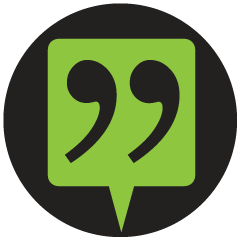From August 2013 to January 2014, I—a humble, workaday professor of English and creative writing at the University of Minnesota—received more than 1,600 letters of recommendation.
In August, I vetted 56 applications for an administrative position in creative writing, each dutifully accompanied by three reference letters.
In September and October, 196 applications for a tenure-track position in creative writing arrived (I chaired the hiring committee), each trailed by the requisite three reference letters.
And in December and January: 296 applications for four available spots for fiction writers in our M.F.A. program in creative writing, again with three letters of recommendation per applicant.
How many of those 1,644 letters of recommendation did I actually read? In the case of the M.F.A. applications, I confess I didn’t even click through the forest of links to access the letters unless the fiction was stellar—meaning that more than 800 carefully composed missives of praise went unread.
I generate 50 to 100 letters of recommendation per year of my own, contributing to the oversupply as conscientiously as I can on behalf of my students, while understanding that the majority of the references I submit will be skimmed at best. (Evidence of the letter-of-rec’s increasing absurdity: While serving on award committees here at Minnesota, I have on more than one occasion opened an e-file and discovered that—in lauding a student or a colleague—I had written a letter to myself.)
The tone and value of the reference letter probably vary according to discipline, but I suspect that my own frustration with the system will find an echo among those in other fields. After perusing this year’s crop of letters, I’ve come up with a few observations:
1. Most letters of reference, as pieces of writing, are awfully dull. The weary recipient skims through the “context in which I knew her” paragraph and hunts for specific accolades like a pig after truffles.
2. Famous authors and professors write shorter and less formal recommendations, knowing that the cachet of their names is worth more than the tribute-laden sentences, which by default become the responsibility of early-career writers, whose letters tend toward the more carefully sincere.
3. Likewise, the recommender from a smaller or lesser-known college typically writes a more elaborate letter than does a faculty member at an elite institution. The word “Harvard” counts for several thick and complimentary paragraphs, the crimson shield on the letterhead reducing the need for encomiums by 30-40 percent.
4. Hyperbole is standard. “Brilliant” describes almost anyone of moderate intelligence, and, in the era of grade inflation, a GPA of 4.0 looks impressive until the next file reveals a student with a 4.3.
5. Faced with hundreds of pages of enthusiasm—a veritable standing ovation in print—some exhausted readers end up scanning the letters mainly to search for signs of trouble, for the tiniest of red flags. “Forceful in her opinions” may be code for “explosive temper.” And “prefers to work by himself” rings an ominous bell.
Thankfully, the Modern Language Association has acknowledged and is devising responses to this ever more meaningless river of acclaim. In a “Draft Statement on Letters of Recommendation,” Margaret W. Ferguson, president of the MLA, envisions “a new MLA document that would, if approved by the Executive Council, outline some best practices for those who write, request, or read letters of recommendation for graduate students seeking employment or postdoctoral fellowships in MLA fields.”
The document would address, among other things, the number of required letters and the use of recommendations only for finalists.
Oh, yes. Yes, please. Just this week I wrote four letters for former students, one of whom confided that she had little chance of securing the job. Still, I trotted off, hopeful and obedient, to the hiring university’s website, which specified that I send my letter via the student. Confidentiality? I guess not. Two other professors, of course, were asked to do the same.
Julie Schumacher is a professor of creative writing at the University of Minnesota-Twin Cities. She is the author of the forthcoming Dear Committee Members (Doubleday), an academic satire written in the form of letters of recommendation.









